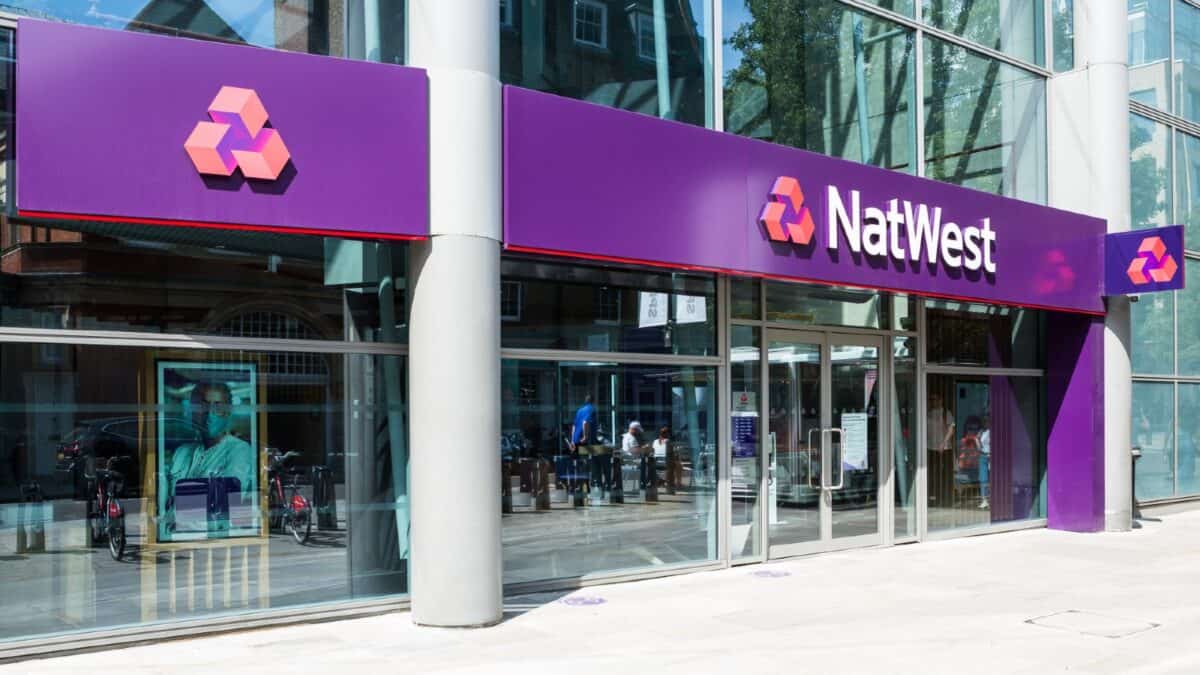There are three FTSE 100 banks that I would consider to be British. Lloyds Banking Group, Barclays (LSE:BARC), and NatWest Group have the majority of their assets located in the country and derive most of their income from the UK.
On 12 February, Andrew Bailey, the Governor of the Bank of England, told a conference: “One remaining puzzle is the market valuation of the large UK banks … the return equity investors’ demand does not seem to have fallen in line with what appears to be greater stability and lower risk.”
In other words, he thought Britain’s banks were cheap.
Since then, their share prices have recovered by between 42% and 66%. These gains are particularly impressive when compared to the FTSE 100, which has increased by 11% over the same period.
| Stock | Share price as 12 February 2024 (pence) | Share price at 30 August 2024 (pence) | Change (%) |
|---|---|---|---|
| NatWest Group | 207.7 | 345.4 | +66 |
| Barclays | 145.5 | 228.1 | +57 |
| Lloyds | 41.4 | 58.6 | +42 |
But despite this rally, I still think they offer good value.
There are a number of ways of assessing whether banking stocks are fairly priced. I’m going to look at the two most common.
Assets and liabilities
A balance sheet approach involves comparing net assets (book value) with market cap.
Using this measure, Barclays is a clear winner with a price-to-book ratio of 0.46. This means if the bank’s assets were sold and the proceeds used to clear its liabilities, there would be enough cash left over to return 495p a share to its owners.
| Stock | Stock market valuation at 30 August (£bn) | Net assets at 30 June 2024 (£bn) | Price-to-book ratio |
|---|---|---|---|
| NatWest Group | 28.5 | 37.6 | 0.76 |
| Barclays | 33.1 | 71.8 | 0.46 |
| Lloyds | 36.1 | 45.1 | 0.80 |
For comparison, according to McKinsey in 2023, the average of all the world’s banks was 0.9.
Income and expenditure
It’s less clear cut when it comes to looking at profitability. The most popular method is to compare share prices to earnings.
Although NatWest Group appears to offer the best value, Barclays is not far behind.
However, it’s worth noting that all three price-to-earnings ratios are less than the current FTSE 100 average.
| Stock | Share price at 30 August 2024 (pence) | Earnings per share – year ended 30 June 2024 (pence) | Price-to-earnings ratio |
|---|---|---|---|
| NatWest Group | 345.4 | 47.9 | 7.2 |
| Barclays | 228.1 | 31.1 | 7.3 |
| Lloyds | 58.6 | 7.1 | 8.3 |
But I think Barclays has the greatest scope to improve its earnings. This — in my view — would make it the better long-term investment of the three.
For the six months ended 30 June 2024, it had the lowest return on tangible equity (RoTE). This means it was the least efficient at using its assets to generate profits.
This can also be seen when measuring its costs as a proportion of income.
| Stock | Return on tangible equity (%) | Cost:income ratio (%) |
|---|---|---|
| NatWest Group | 16.4 | 55.5 |
| Barclays | 12.0 | 62.0 |
| Lloyds | 13.5 | 57.1 |
For every one percentage point improvement in its RoTE, Barclays would generate an additional £500m of earnings each year. The bank plans to generate a return of more than 12% by 2026.
Buyer beware
But investing in a UK bank comes with some risks.
Although the domestic economy is showing the green shoots of growth, a recovery isn’t guaranteed.
And there’s still the threat of more customers defaulting on their loans. During the year to 30 June 2024, Barclays made provisions totalling £1.88bn as an estimate of the impact of potential bad debts.
However, despite these challenges, I think now’s a good time to invest.
That’s why I recently decided to take a stake in Barclays. I think it has the biggest potential of the UK’s banks.
It’s less exposed to the UK property market than the others. In addition, approximately 40% of its assets are located outside the country. This makes it less reliant on one territory. And I like the sound of its cost reduction plans, which are currently underway.







